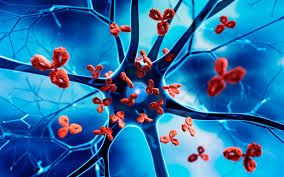Understanding Autoimmune Diseases
Understanding Autoimmune Diseases
The human immune system is a sophisticated defense network tasked with distinguishing between "self" (the body's own tissues) and "non-self" (foreign invaders). Under normal circumstances, the immune system effectively identifies and neutralizes threats like bacteria, viruses, and cancer cells while sparing the body's own tissues. However, in autoimmune diseases, this recognition process malfunctions, leading the immune system to perceive its own components as enemies.
This misdirected attack can occur due to various factors, including:
- Genetic predisposition: Certain genetic markers are linked to a higher risk of autoimmune conditions.
- Environmental triggers: Infections, toxins, or exposure to specific chemicals can initiate an autoimmune response in genetically susceptible individuals.
- Hormonal influences: Some autoimmune diseases, like lupus, are more prevalent in women, suggesting a role for hormones.
- Stress and lifestyle factors: Chronic stress and unhealthy habits may also contribute to immune dysregulation.
The Spectrum of Autoimmune Diseases
There are over 80 recognized autoimmune diseases, each affecting different tissues and organs. Some of the most common and impactful conditions include:
Rheumatoid Arthritis (RA):
A condition that primarily targets the joints, causing pain, swelling, and stiffness. Left untreated, it can lead to joint deformity and loss of function.
Systemic Lupus Erythematosus (SLE):
A systemic disease that can affect multiple organs, including the skin, kidneys, heart, and brain. Symptoms vary widely, making diagnosis challenging.
Hashimoto's Thyroiditis:
An autoimmune disorder that damages the thyroid gland, leading to hypothyroidism and associated symptoms like fatigue, weight gain, and sensitivity to cold.
Type 1 Diabetes:
In this condition, the immune system destroys insulin-producing cells in the pancreas, resulting in high blood sugar levels and long-term complications.
Multiple Sclerosis (MS):
MS affects the central nervous system, leading to neurological symptoms such as vision problems, muscle weakness, and difficulty with coordination.
Psoriasis:
An autoimmune condition that speeds up skin cell production, resulting in itchy, scaly patches on the skin.
These diseases can be organ-specific (affecting one organ or tissue) or systemic (impacting multiple systems throughout the body).
Signs and Symptoms: Recognizing Autoimmune Diseases Early
Autoimmune diseases often present with vague and nonspecific symptoms, which can make early diagnosis challenging. Common symptoms include:
- Persistent fatigue
- Unexplained muscle or joint pain
- Skin rashes or lesions
- Recurrent fevers
- Swelling or redness in affected areas
- Digestive disturbances
- Neurological issues, such as numbness or tingling
Since many of these symptoms overlap with other conditions, patients often face delays in receiving a proper diagnosis.
Diagnosis: The Path to Clarity
Diagnosing autoimmune diseases requires a careful evaluation of clinical symptoms, medical history, and diagnostic tests. Physicians use a combination of the following methods:
Blood Tests:
- Autoantibodies: Tests like ANA (antinuclear antibodies) and RF (rheumatoid factor) help identify specific autoimmune markers.
- Inflammatory Markers: Elevated levels of CRP (C-reactive protein) or ESR (erythrocyte sedimentation rate) may indicate inflammation.
Imaging Studies:
- X-rays, MRIs, or ultrasounds assess structural damage or inflammation in affected tissues.
Biopsy:
- Tissue samples from affected organs can confirm an autoimmune process.
Functional Tests:
- Tests such as thyroid function panels or glucose tolerance tests assess the impact on specific organs.
Clinictor provides comprehensive resources to help patients understand these diagnostic tools and locate specialists for proper evaluation.
Treatment Strategies for Autoimmune Diseases
Although there is no definitive cure for autoimmune diseases, advancements in medical science have significantly improved symptom management and quality of life. Common treatment approaches include:
Medication:
- Immunosuppressants: Drugs like methotrexate and azathioprine reduce the immune system’s overactivity.
- Corticosteroids: These are effective in controlling inflammation during disease flares.
- Biologic Agents: Targeted therapies like TNF-alpha inhibitors or IL-6 blockers offer precision treatment with fewer side effects.
Lifestyle Modifications:
- A balanced diet rich in anti-inflammatory foods, regular physical activity, and adequate sleep are critical for managing symptoms.
- Stress reduction techniques, such as mindfulness or yoga, can also help regulate immune responses.
Physical Therapy:
- Particularly useful in conditions affecting mobility, such as RA or MS, to preserve joint function and muscle strength.
Supportive Therapies:
- Pain management, psychological counseling, and patient education programs are essential components of holistic care.
Living with Autoimmune Diseases
Managing an autoimmune disease requires a proactive and informed approach. Patients often benefit from joining support groups and accessing educational resources to better understand their condition. At Clinictor, we recognize the importance of empowering individuals with reliable information and connecting them with ethical healthcare providers.
Through our platform, patients can explore a wide range of treatment options and facilities tailored to their specific needs, without any hidden costs or biases. Clinictor is committed to promoting patient autonomy and ensuring access to trustworthy, patient-centered care worldwide.
Autoimmune diseases underscore the complexity of the human immune system and its delicate balance. While challenges in diagnosis and treatment persist, ongoing research and patient education offer hope for improved outcomes. At Clinictor, we stand as a global partner in navigating these challenges, ensuring that individuals worldwide have the tools and support they need to make informed healthcare decisions.
Remember, knowledge and timely action are the most powerful tools in managing your health.





